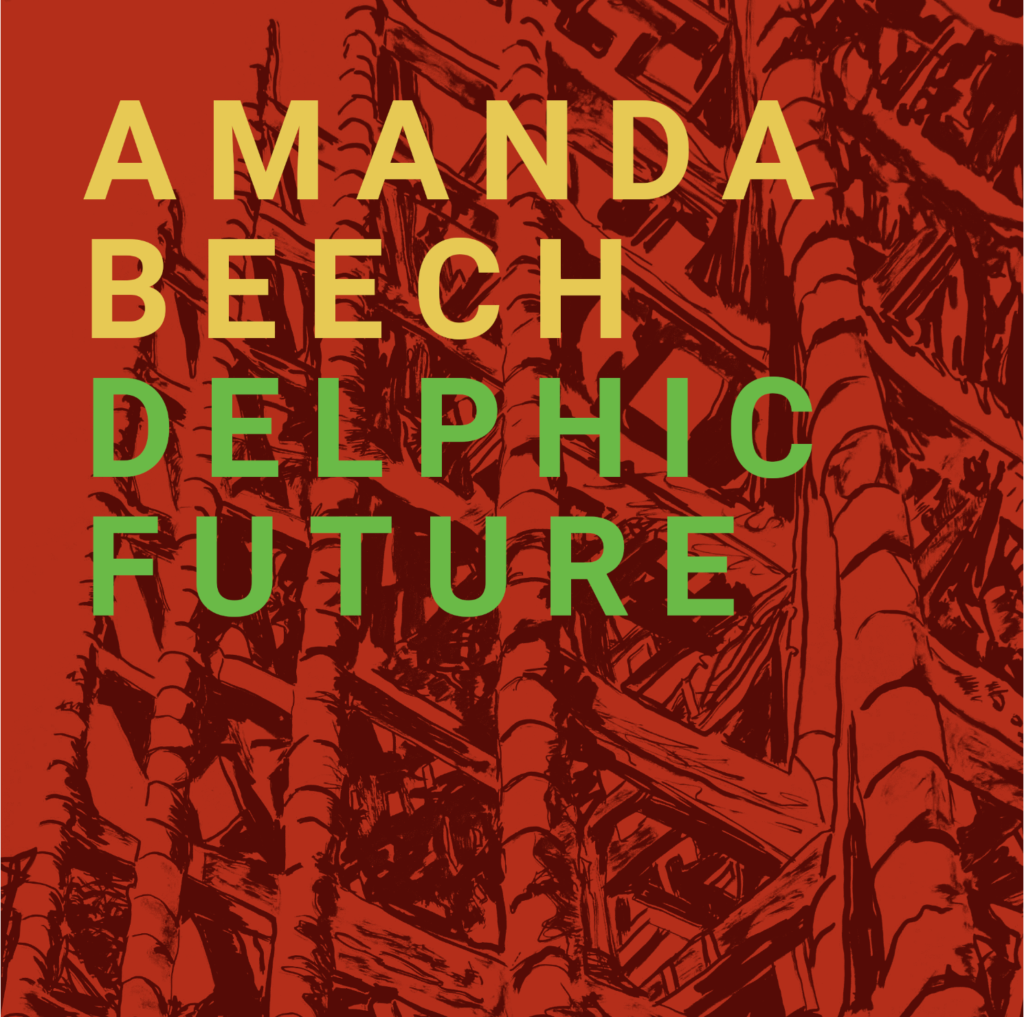Twelve Ten Gallery Solo Exhibition Delphic Future

Twelve Ten Gallery is pleased to present new paintings and drawings by Amanda Beech, accompanied by an installation of the video work Covenant Transport Move or Die (2015) and a special one-night US premiere of her 2022 film Map of the Bomb (commissioned by Fieldwork Marfa) at the Music Box Theatre.
These works ask: what does it mean to determine the future?
We could think of “determine” in two senses here: the causal and the descriptive. Beech is concerned with both senses. She rejects the predominant trajectory of contemporary art in favor of a renewed rationalism and diagnoses contemporary art with practicing a “pseudo-critical irrationalism” that sees the critical gesture as an end-in-itself. The artworld’s ubiquitous deployment of this gesture, however, is without any determinate political content that could offer an alternative means of overcoming systems of domination (capitalism being an exemplar). If we are to truly regard art as having some purchase on the world, we must take art seriously as both a technique for producing knowledge about the world and as a means of generating a new world.
Her work has engaged this problem in all forms of media, but consistently concentrates on how images, stories and narratives construct a systemic reality that we often and erroneously mythologize as inchoate material. Her videos generate cultic pop-fiction involving the work of Ayn Rand and Dashiel Hammett, alongside US trash consumerism, Tony Scott’s vampire movie The Hunger, and inventions of parallel sci-fi realities that are more “real” than the world we experience. Covenant Transport Move or Die focuses on the fetishization of mobility in contemporary culture and its violence, and Map of the Bomb offers a dissonant subterranean neo-noir reality episodic fiction that touches the explosive subject of “reality in itself”.
Beech’s new works on paper enmesh systems of divergent techno-naturalisms, collapsing industrial installations and rampant entropic overgrowth in a cosmological machine that objectifies the dream of “infinite possibility”. These works merge print, paint and ink, layering vertiginous natures that often compel us to decipher structures as if they are hidden when in fact they are explicit. Inspiration for this new series comes from the medieval philosopher Ramon Lull, who developed a rudimentary algorithmic procedure which operated over an iterative and combinatorial process called the Ars (art). The Ars was composed of sets of abstracted symbols and was illustrated by a series of intricate circular diagrams and tables, with instructions that indicated the rules for querying the system. Significantly, Lull saw this system as rectifying a major deficit in the practices of Scholasticism, which could only elucidate given syllogisms. The Ars, however, could be used not only to identify truths but also to construct new propositions.
Lull’s diagrammatic machines surface in Beech’s work in several guises: as both imagery in her works on paper and as a method for determining the course of her new film Map of the Bomb. Not only is Lull’s invention the lever for this work, but also the book Plotto, written by the dime store author William Wallace Cook in the 1920’s. Cook’s method became an influential device for genre fiction and films, and Alfred Hitchcock, among many others, was known to use it. For Beech, it is not just the creative impetus that these logics offer, but the formal, ideological and methodological constraints through which they are structured, indicating not just the all too clear problem of claims to objectivity, but more crucially, to argue that creativity need not be divorced from rationality. It is in the development of such methodological devices that art gains purchase on the world as a technique.
With this in mind, Beech is keenly aware that the use of these devices is not transparent; for in deciphering the world, we do more than reveal its secrets, we also add to the complexity of the world. The Janus-faced nature of our “determine” asserts its full consequences: new information ramifies the site of investigation, changing its trajectory and manifesting a new future. The devices Beech has sketched into her works are not just decrypting the world, but they are also a part of it, and as they work to overtake nature the entropy they generate leads nature to overtake them: the oracle creates its own future.
